We are claiming this natural disaster as our own
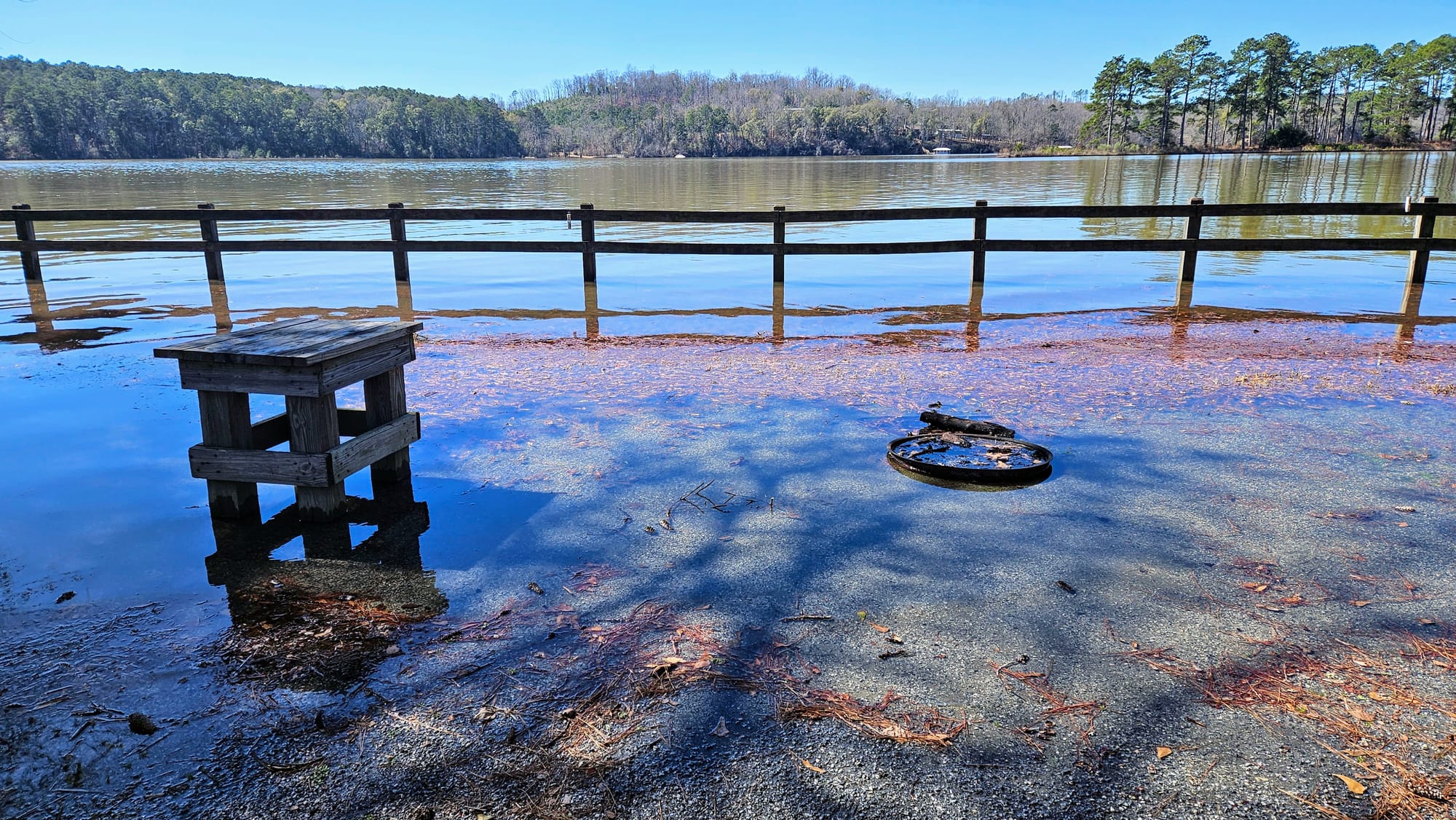
After our month in Florida, we made our way into the next chapter of Season 3, one that would include a journey through the South, so we could check off more states RVed: Alabama, Mississippi, and Arkansas. We would slow our travels down a bit, enjoy the southern culture and cuisine, and ring in springtime. Booking campsites for these states was very different from Florida because we weren't going to any big "destinations," but instead were venturing local, where most campgrounds were experiencing the off-season. This meant opportunities to find some really remarkable campsites.
First up was an Army Corps of Engineers (COE) campground, Hardridge Creek, in Abbeville, AL. The COE manages waterways all across the US, and they're wonderful campgrounds for getting a lot of bang for your buck, with gorgeous waterfront sites, oftentimes with hookups, for less than $40/night – sometimes much less, especially if you have a National Parks military, senior, or access pass. In peak season, COE campsites can be hard to come by, but wintertime has given us ample availabilities. Having not been to this location before, I did my best at choosing a site that would give us a water view. I chose site 49, which was in the "view" loop, figuring that would be a safe bet. I also liked that the map showed it situated near the day-use beach and picnic area, because in winter, I assumed no one would be using it, which meant we'd have a vast view of the whole beach. Turns out, I was right, and even better, we had beach access right from our campsite. Too cold to swim, of course, but we just like having a view and a scenic place to walk.
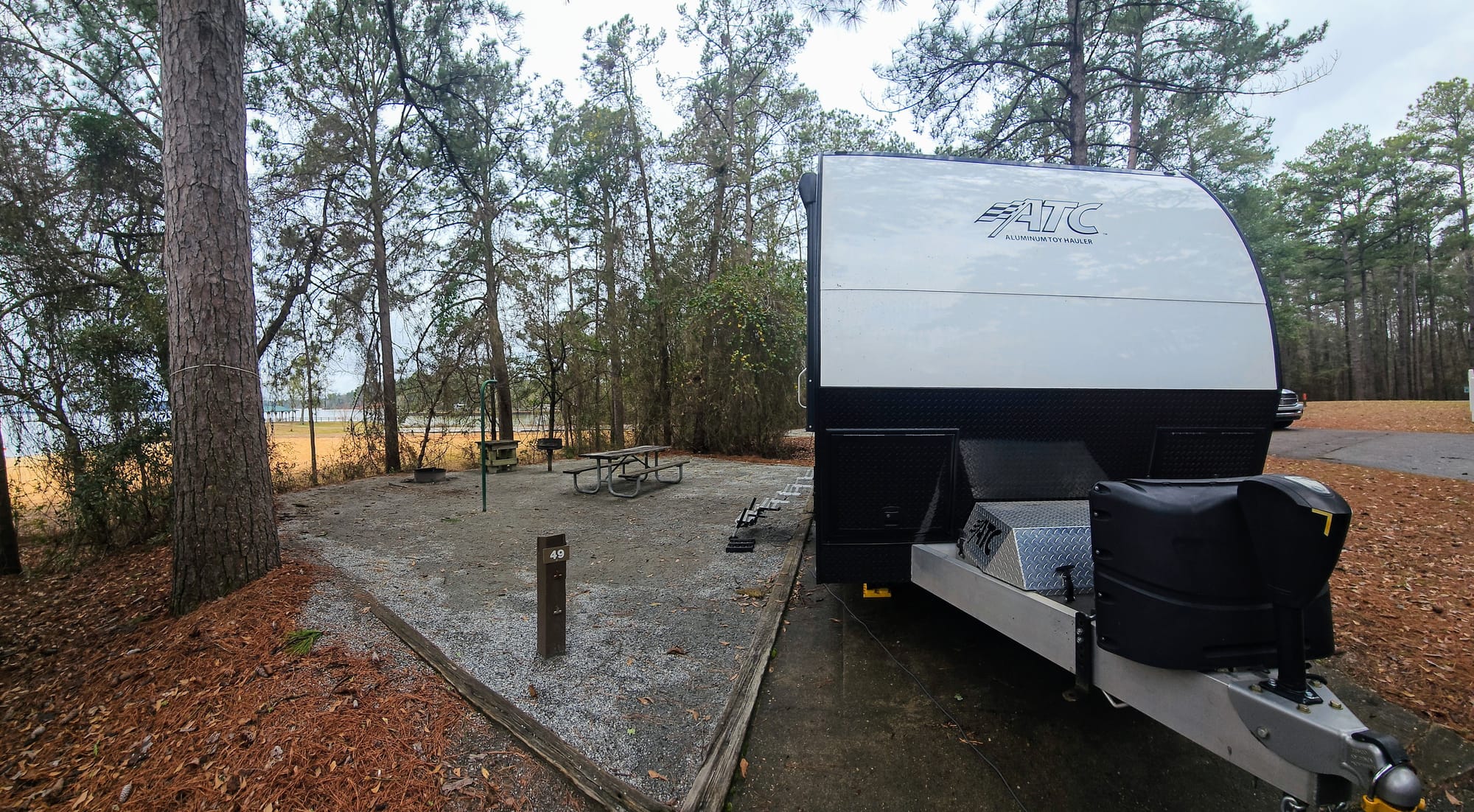
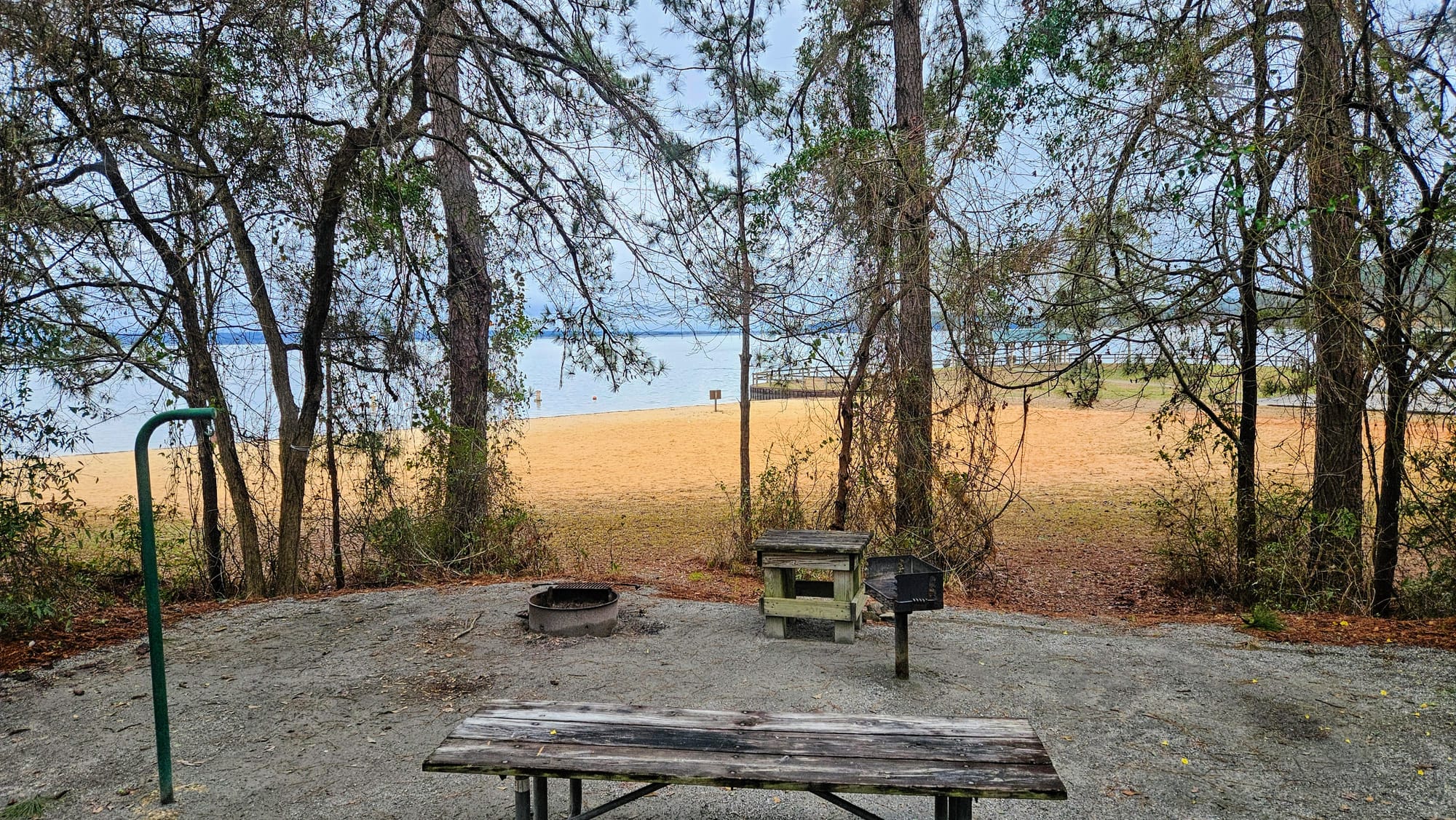
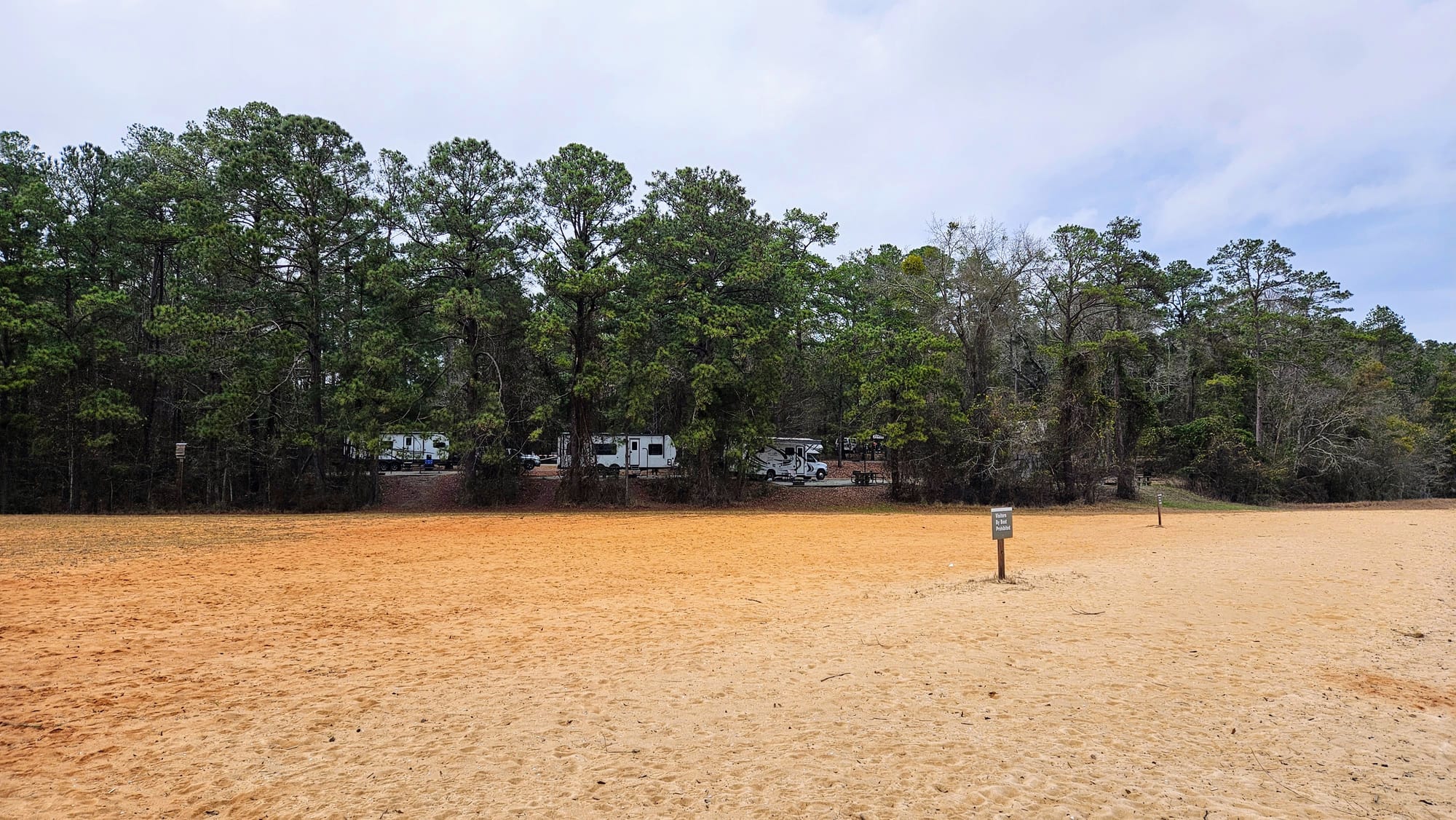
Hardridge Creek Campground is on the Alabama-Georgia border, where Hardridge Creek flows into Walter F. George Lake. It's a reservoir, actually, created by a lock and dam system. This is why the COE manages it, and typically that means the water levels can be managed as well. So we were a little surprised when a rainstorm came through one night, and the next morning we woke up to see that our beach now had two shorelines.
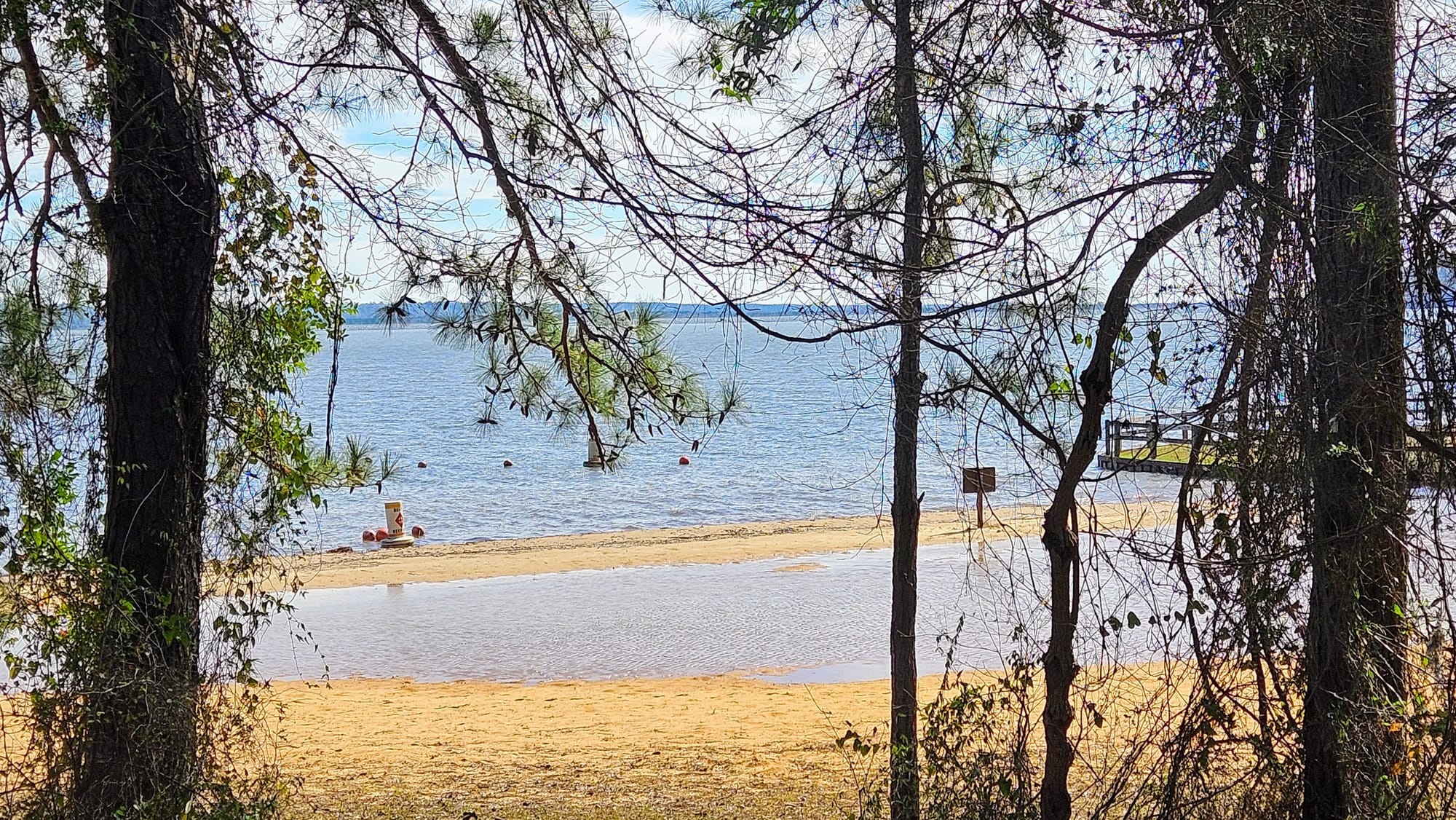
We didn't know how bad the water levels would get, but campground staff were already on top of things, closing down the loop on the other side of the beach.
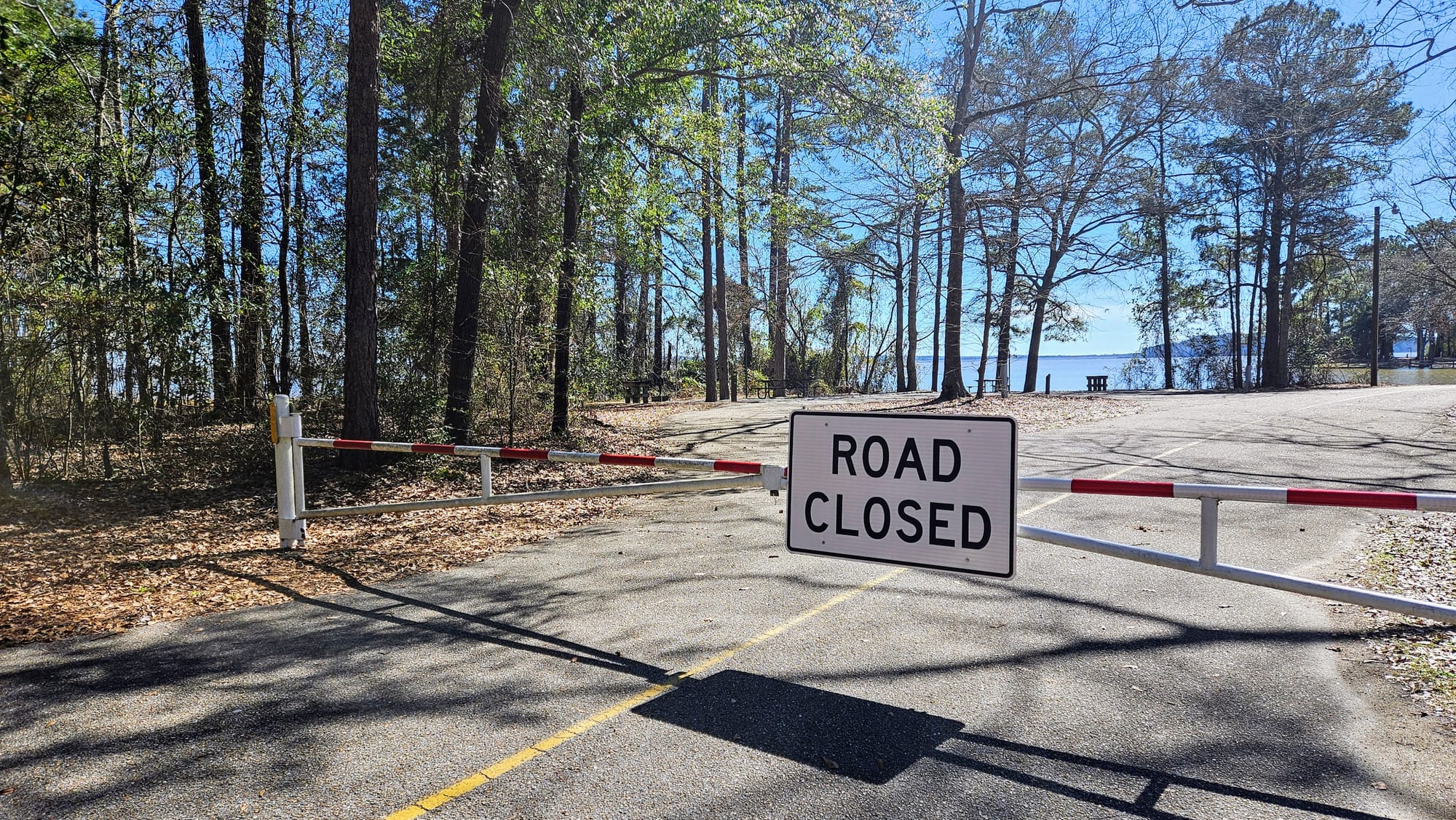
We took a walk down the loop to see how bad the floods had gotten. No sites were submerged yet, but the water levels had risen high enough to start coming over the barriers.
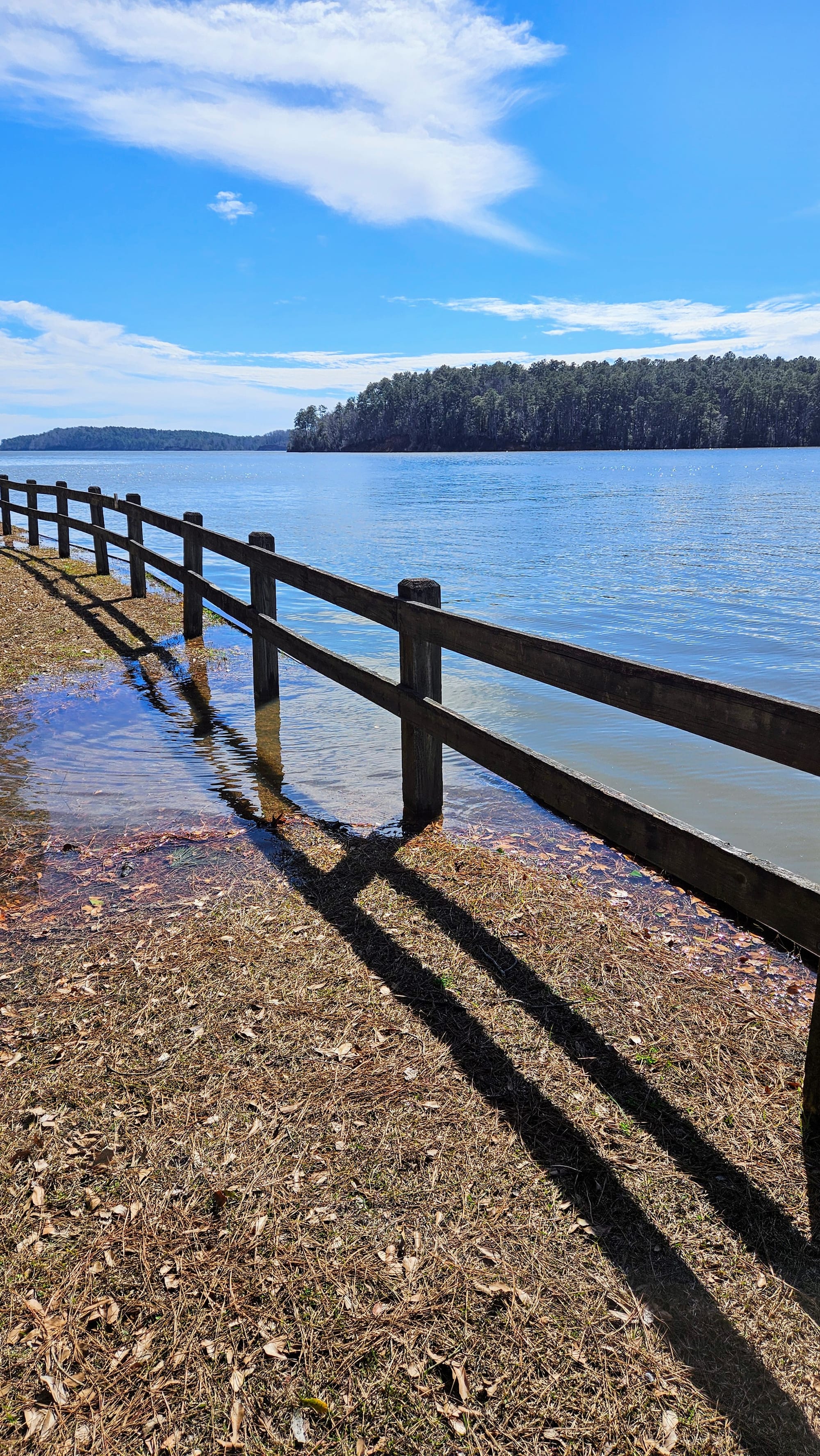
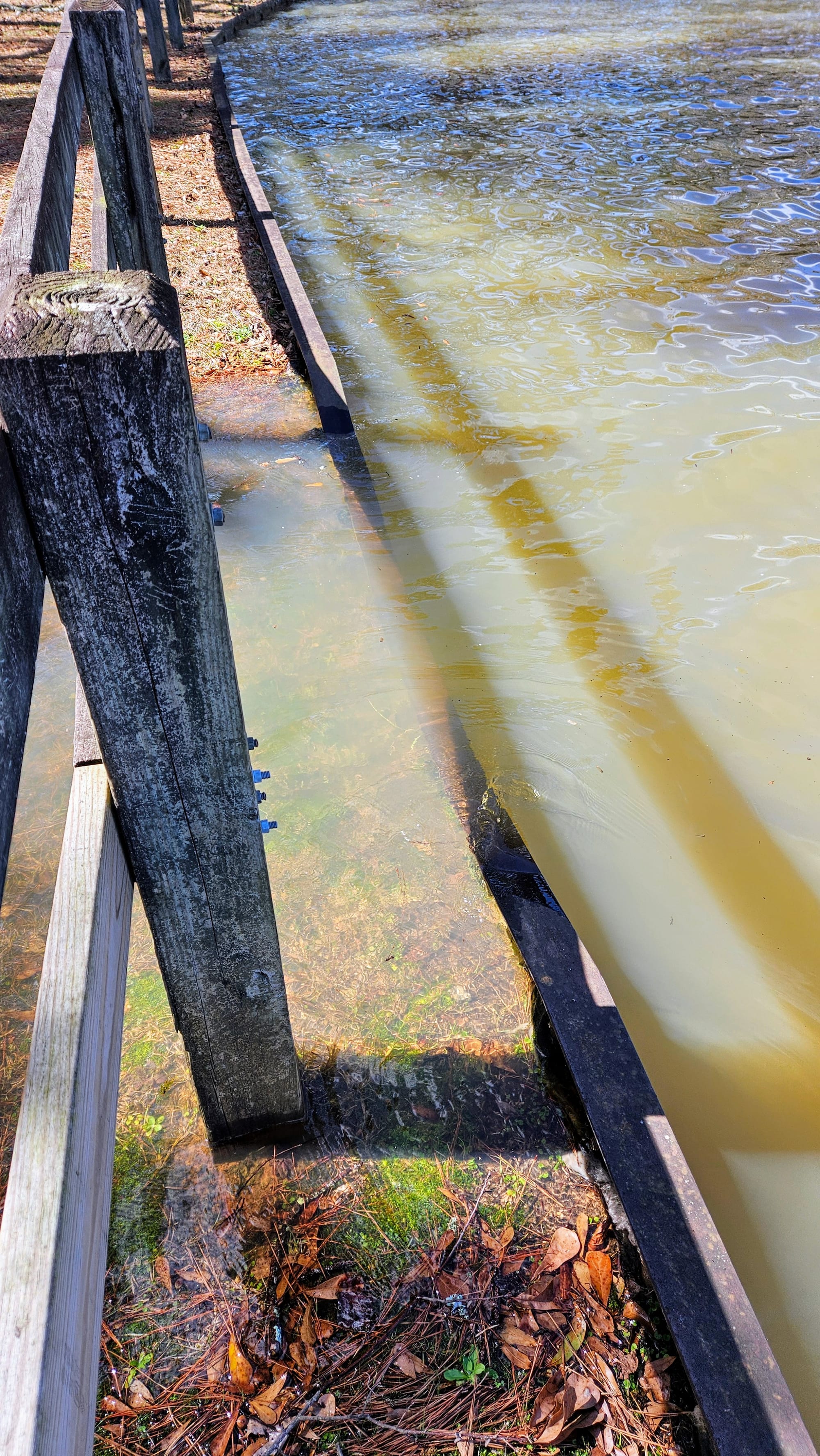
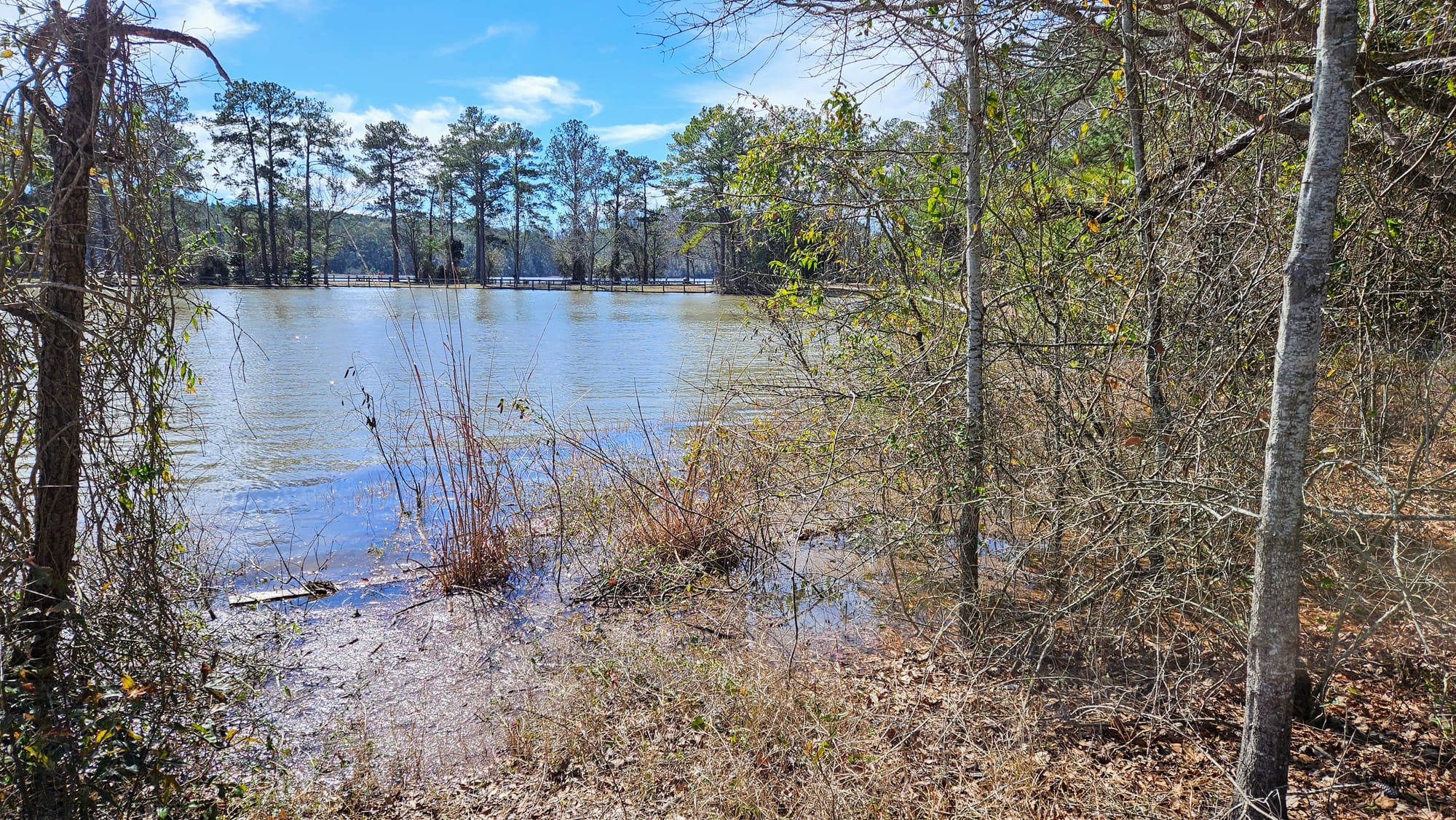
The closed loop was actually our favorite loop when we did our post-arrival exploring. It has water on both sides and some of the sites are pull-thru, where the entire site has lake frontage. If I had known this while reserving a campsite, I probably would have chosen one in this loop, but I'm thankful we didn't, because we would have had to move to a different site. That would have been our third evacuation since we began RVing.
Back in our View Loop, we watched the beach waters closely, but we weren't worried. We were several feet above the shore, and no more rain was due to come in while we were there. We did, however, assume that the water would keep rising for a couple of days before it receded. We've been in enough floods to understand how the levels work. Sometimes the worst flooding comes several hours to several days after the storm, depending on the layout of the land. Assuming this reservoir helps to keep Hardridge Creek and other creeks/rivers at reasonable heights, they probably needed to let more water in from the dam, letting those waters rise instead of the rivers, which would be more detrimental to the surrounding communities.
As we kept an eye on the floods at Hardridge Creek, I needed to also monitor what was happening north of us. We were supposed to head towards Montgomery mid-week, to another waterfront spot, but they were experiencing floods and needed to close. Typically, their closures last only a couple of days, but even if they were able to reopen, we weren't about to risk driving on wet grounds because we didn't want to get stuck. We knew this next place would be a no-go. It was a first-come, first-served, so we had no reservations to cancel. Instead, we noticed that our current site at Hardridge Creek was available until that Friday, and so we tacked on a couple more days to our reservation. That meant we'd have a twice-as-long drive day on Friday, but we didn't need to scramble to bring our RV somewhere else. From what we saw on Google maps, the Alabama River was flooding in some areas, so we would have had to be extra diligent with our drive, and we just didn't want that added stress. So we stayed put. Of course, we weren't 100% safe. Extra days in our site meant more time for the beach waters to rise, but we didn't see them getting bad enough. If for some reason they did, there were plenty of places within the campground that we could have moved.
Wednesday, the day we were originally due to leave, brought the most floods. The closed campground loop was looking worse and sites were getting submerged. The beach water was now several feet higher.
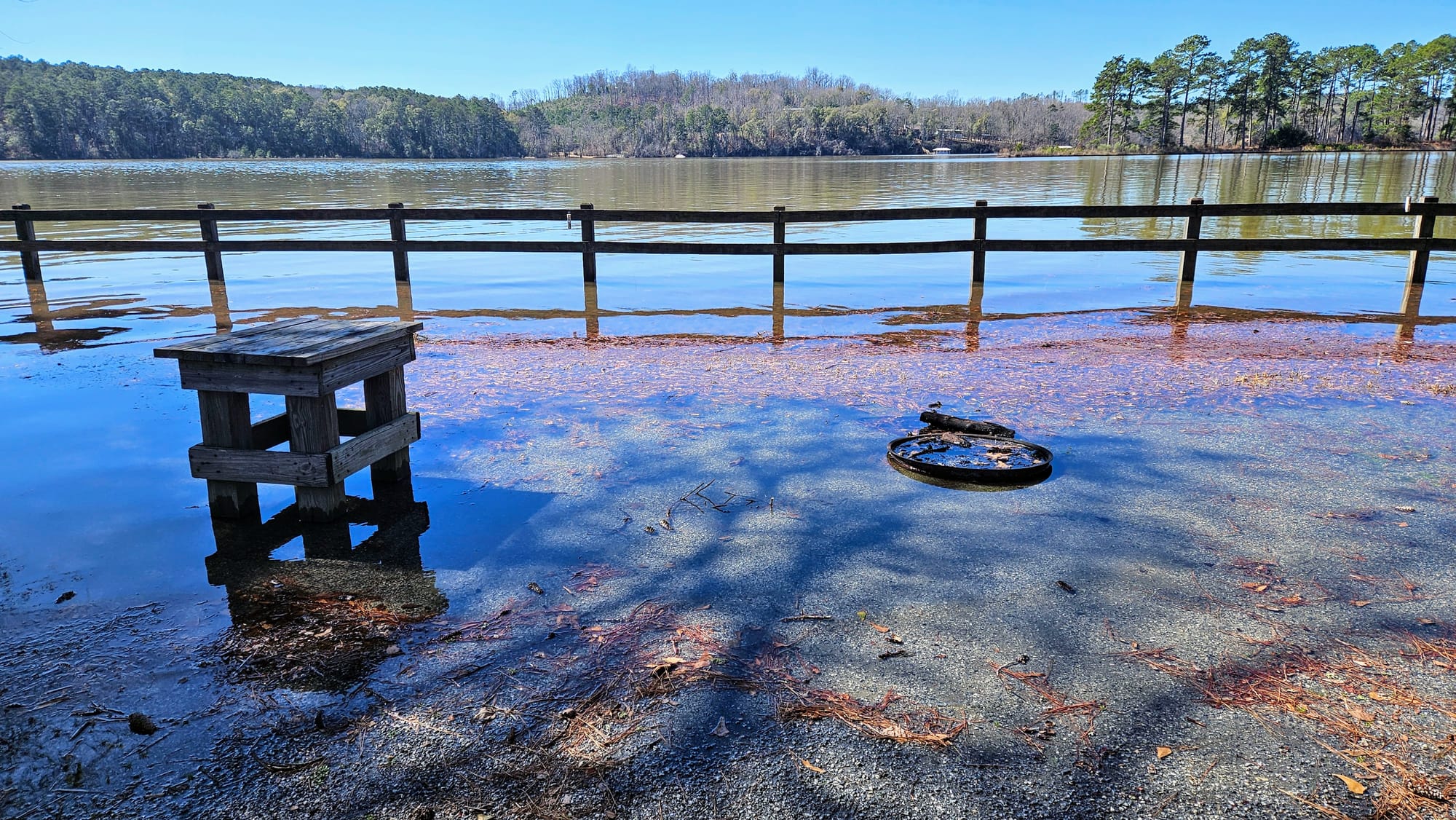
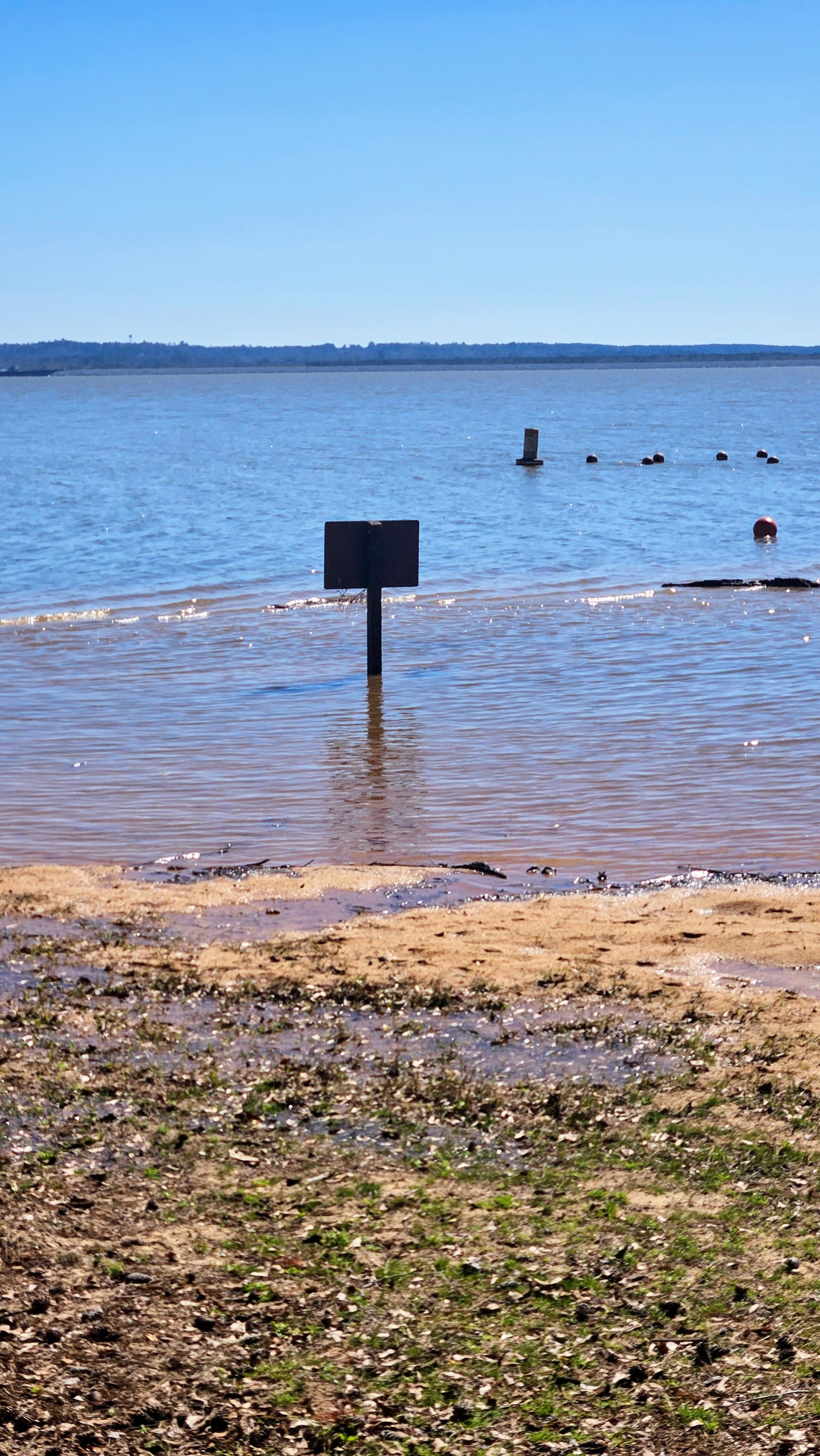
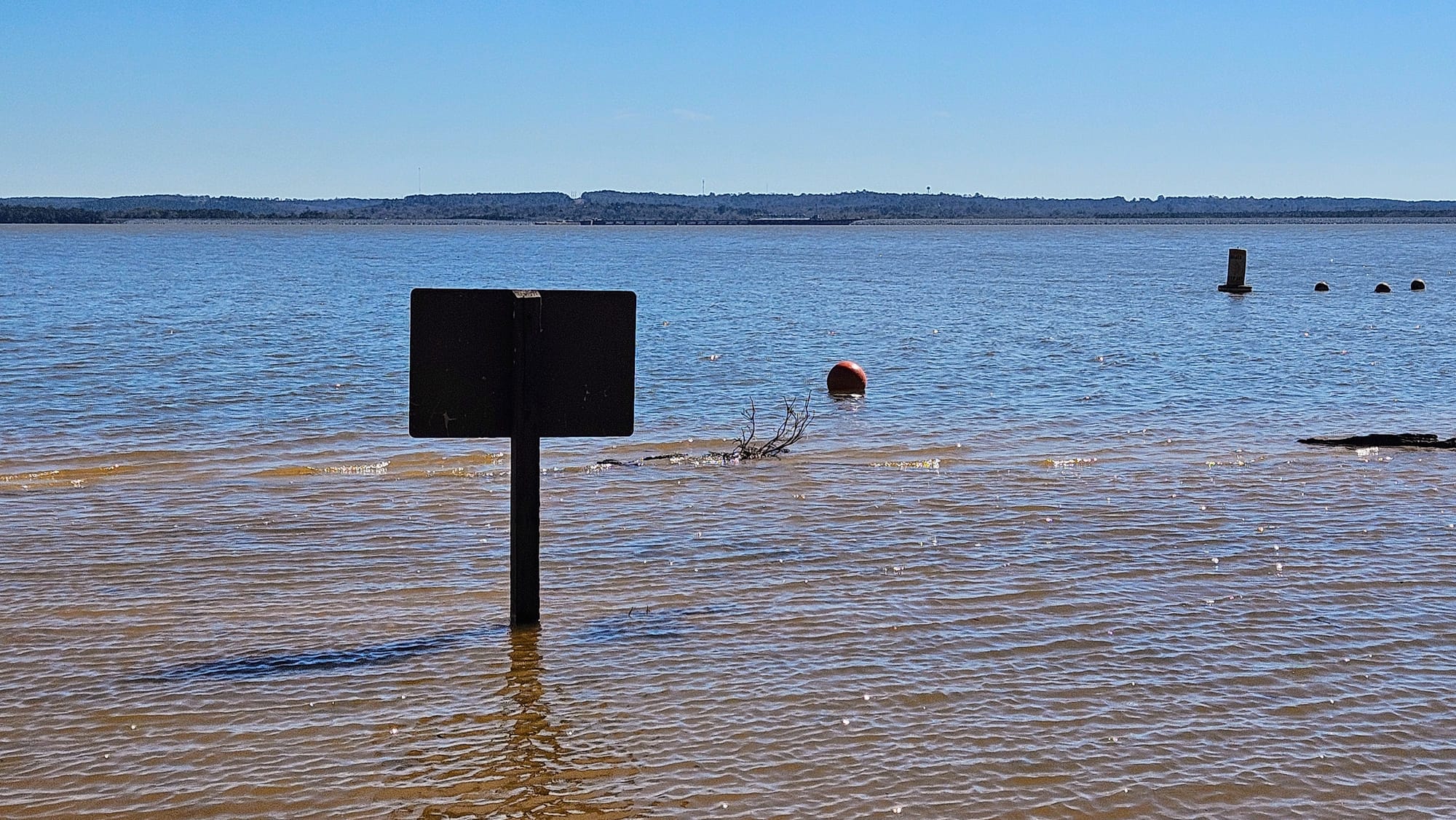
I watched my Rivercast app, which didn't have a gauge for our exact area, but did have listings for where the Chattahoochie River flows into the reservoir. It was well into the flood stage, but the forecast was trending lower starting Wednesday evening. If this was true for our beach as well, then by Thursday morning, the waters should be starting to recede.
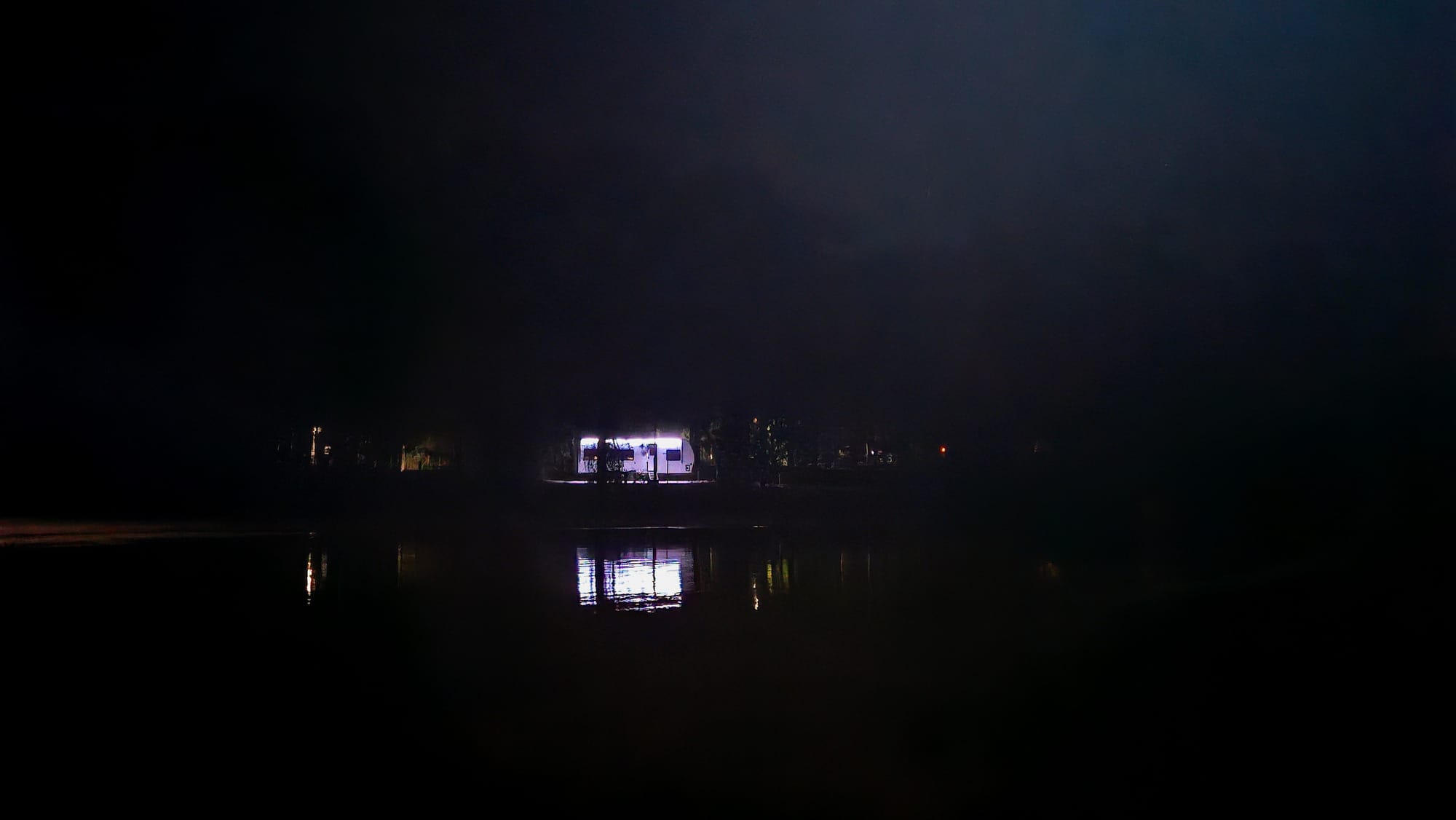
Thankfully, this was what happened. We woke up to find more exposed sand on the shores of the beach. The staff was also able to reopen the closed campground loop. We could rest easy for the remainder of our stay.
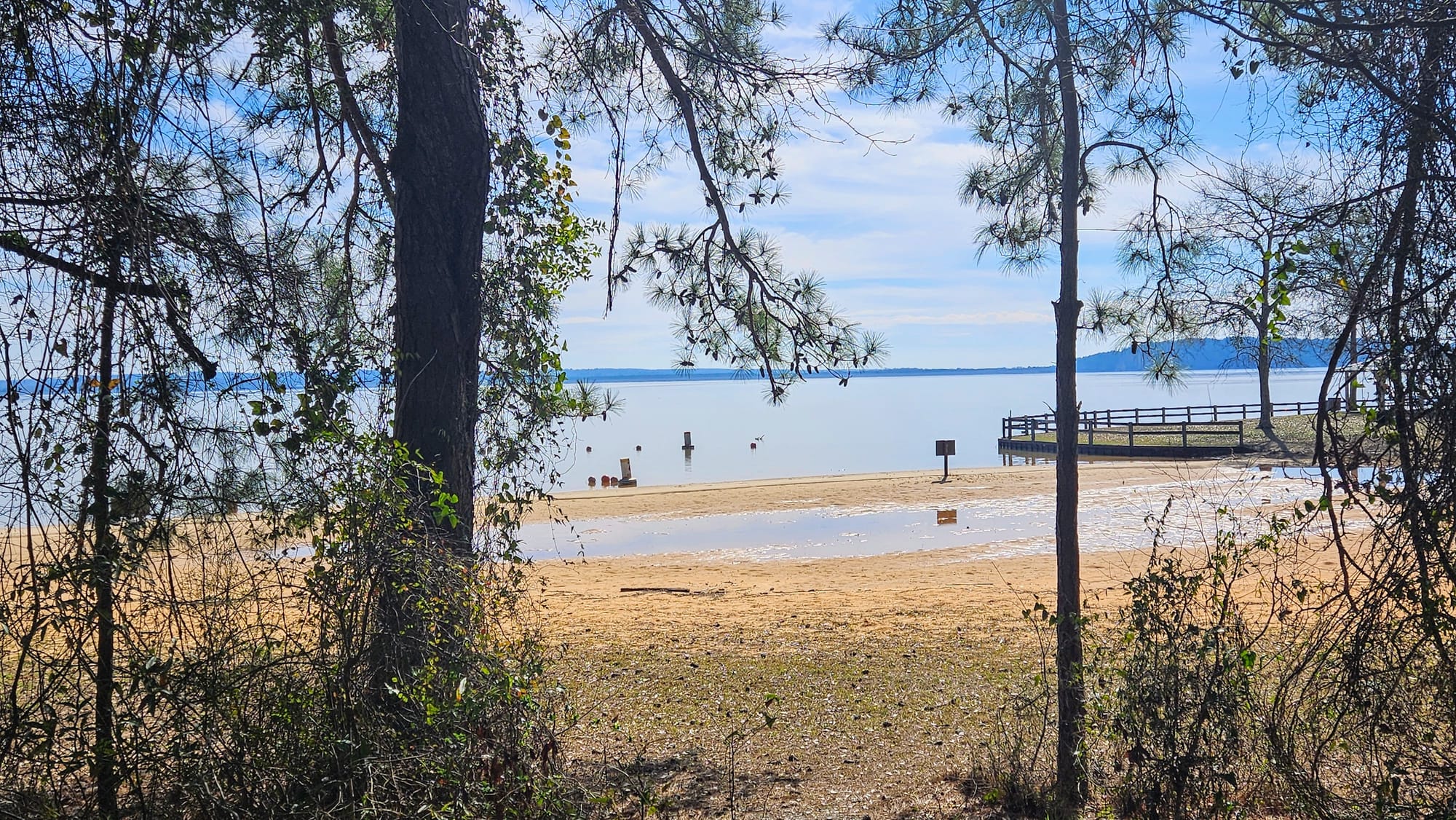
This situation was a walk in the park compared to some others we've experienced in our RV life, but as we monitored the floods, we thought about the number of times flooding has interfered with our travels in some way. After all, there's a reason we're able to monitor the waters so efficiently. We're at around 25,000 towing miles and well over 100 campsites at this point, and in that time, we've experienced 4 tornado watches, 2 snowstorms, 0 hurricanes, 0 earthquakes, 0 wildfires, 1 dust storm, and a small handful of windstorms, power outages, and that one thunderstorm that's always worth mentioning. But, the number of flood-related incidents?
Standing water in our campsite after a storm (at least ankle deep): 3
Evacuations: 2
Floods/warnings interfering with our travels: 6
Some of those situations, like our evacuations, were so bad that they obviously created all of the above, but we're only counting it once. We also had one instance of a flooded campsite at Vegas Bay, but this was due to a faulty irrigation system and not a natural disaster, so we're not counting it in this list. Case in point, floods seem to be a big player here, with more flood-related issues than all other natural disasters combined. You could say it's because we seek out waterfront sites, but most of these didn't even happen at waterfront sites! (We also stay in far more non-waterfront sites than we do waterfront, but we tend to talk about the waterfront ones more because they're pretty...when they're not posing endless danger to us or our trailer).
When we realized this, we wondered, do other full-time travelers have a natural disaster that seems to follow them everywhere they go? If you do, please let us know! For us, we've decided to claim the flood as our natural disaster. We have had some scary experiences, but they've taught us how to best prepare and react to flood warnings, and they've also taught us that floods are no joke. Actually, full-time RVing has shown us that all natural disasters need to be taken seriously. We used to brush off thunderstorms like they're no big deal, but one lightning strike changed all that. We used to see riverfront campsites as being serene and idyllic, but we learned the hard way that any nearby river source needs to be monitored all the time, even when the weather seems calm. We've heard countless RVers brush off the seriousness of the winds in New Mexico, saying that "you won't get anywhere unless you drive in high winds," but we want to assure all of them that the windstorm we got stuck in was not an everyday occurrence for New Mexico, and we've learned the difference between "everyday" and "get off the road now." We've also learned that when the forecast is predicting severe weather, we need to be ready to respond safely, no matter how slim a chance the weather will produce a storm cell. Basically, if you're going to RV, no matter where or for how long, you need to become an amateur meteorologist, tracking the weather, learning how to stay safe, but remaining calm at the same time. Most importantly, you can't let fears of bad weather keep you from experiencing this incredible country. Even with our flood count being disproportionately high, our list of natural disasters remains quite small, given how many places we have traveled. When those experiences happen, we learn and grow from them, and then we continue on with this life we've carved out for ourselves, because to us, all of it is good. We are either making incredible memories, or we are learning valuable lessons, and with those lessons, we come to appreciate nomadic life even more.
Like our stories? Please consider subscribing to our blog! You'll get our blog posts sent straight to your email, as soon as they're released. Sign up below!

